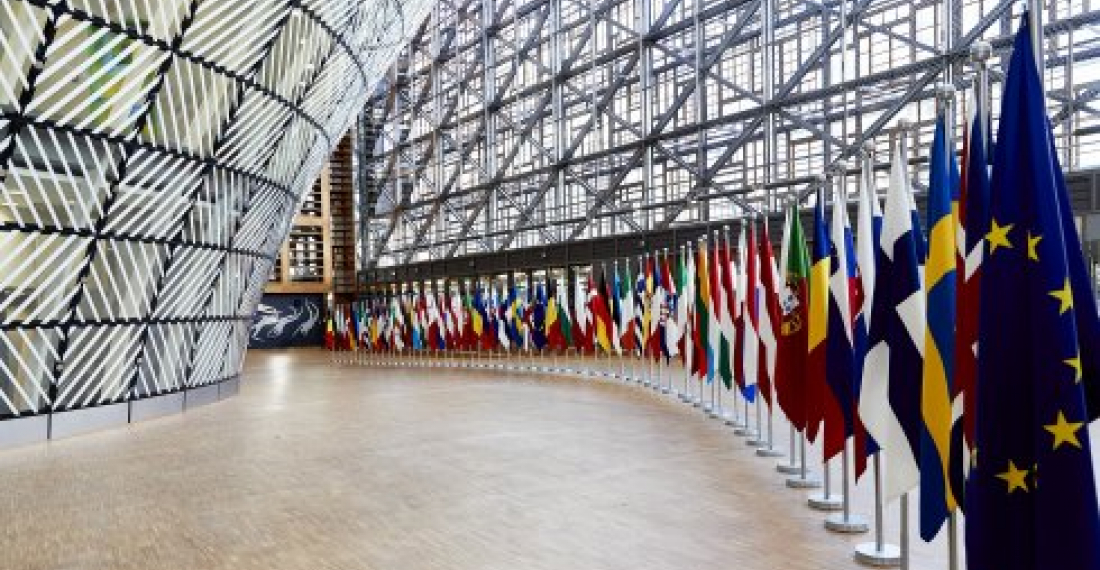The Foreign Ministers of the 27 member states of the European Union discussed the situation in the Eastern Mediterranean, the fallout from the recently held presidential elections in Belarus and other international flashpoints, at a specially convened video meeting of the Foreign Affairs Council on Friday (14 August).The Ministers are expected to meet informally in Berlin on 27-28 August at the invitation of the current German presidency of the European Union, when discussions on these issues are expected to continue.
The Ministers discussed the situation in the Eastern Mediterranean, following a grave deterioration of the security situation in recent days. A press release issued by the European External Action Service (EEAS) said that "three words reflect the outcome of the discussion: solidarity, de-escalation, and dialogue".
Ministers reaffirmed the EU's full solidarity with Greece and Cyprus. They reiterated that sovereign rights of EU Member States must be respected. They recalled EU common positions and the previous Council Conclusions of 22 March 2018 and June, July, October, December 2019, in addition to the Statement on the situation in the Eastern Mediterranean of 15 May 2020.
At the same time, Ministers stressed that the serious deterioration in the relationship with Turkey is having far-reaching strategic consequences for the entire EU, well beyond the Eastern Mediterranean
Ministers stressed in particular that recent naval mobilisations by Turkey do not contribute to finding any solutions. On the contrary, they will lead to greater antagonism and distrust. They create a heightened risk of dangerous incidents. Immediate de-escalation by Turkey was considered crucial.
Ministers recalled the importance they attach to relations with Turkey. They underlined that issues related to delimitation of maritime boundaries and exploitation of resources therein can only be addressed through dialogue and negotiation, in good faith, in accordance with international law and in pursuit of the principle of good neighbourly relations, and not through unilateral actions and the mobilisation of naval forces.
Ministers recalled the outcome of the Foreign Affairs Council of 13 July. They reiterated strong support for the High Representative's efforts to re-establish dialogue and facilitate re-engagement with Turkey. At the same time, the High Representative/Vice-President is to prepare options on further appropriate measures in case tensions do not abate.
On Belarus the EEAS press release stated:
Ministers reiterated their repeated call to the Belarusian authorities to stop the disproportionate and unacceptable violence against peaceful protesters. The EU expects the authorities to release immediately all unlawfully detained persons. In light of shocking reports of inhumane treatment and detention conditions, the European Union expects a thorough and transparent investigation into all alleged abuses, in order to hold those responsible to account.
During their discussions, the Ministers sent a strong signal of the EU's support to the Belarusian population in their desire for democratic change.
It was further stated:
The Ministers reiterated that the elections were neither free nor fair. The European Union considers the results to have been falsified and therefore does not accept the results of the election as presented by the Belarus Central Election Commission. The European Union will therefore put forward to the Belarusian authorities a proposal for EU support in in establishing and facilitating a dialogue between the political authorities, opposition and broader society in view of resolving the current crisis. The High Representative/Vice-President and his services will begin work on this proposal immediately.
Ministers also agreed on the need to sanction those responsible for violence, repression and the falsification of election results. The work on additional listings within the existing sanctions framework for Belarus will start immediately.
The Ministers also discussed the situation in Lebanon, Venezuela and Bolivia.
You can read the press release issued after the meeting by the EEAS here
source: commonspace.eu with agencies






